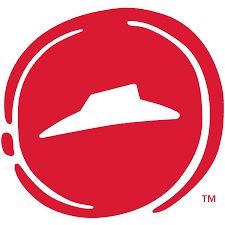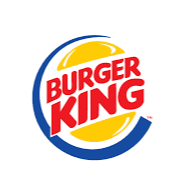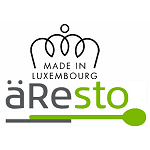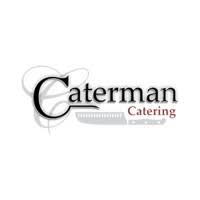
Working as a chef in Luxembourg
We will not only uncover the intricacies of the chef's role but also navigate through various positions within the gastronomic realm. We'll discuss the requisite training and skills essential for aspiring chefs, providing insights into the diverse paths available.
Let's explore the intricate role of a chef de cuisine, the leader of a professional kitchen, whether in a restaurant, canteen, or catering service. Referred to as the "chef," or, if qualified, "master restaurateur," the chef de cuisine shoulders substantial responsibilities beyond the act of cooking.
What is a chef de cuisine in Luxembourg and what they do?
With a watchful eye over ongoing cooking processes, plate presentation, and inventory, the chef is instrumental in maintaining the quality of dishes served, directly influencing the establishment's reputation. The position involves a multifaceted array of responsibilities:






Wanna cook, Jesse?
The chef de cuisine position is a dynamic blend of creativity, leadership, and operational acumen. While the role offers autonomy, prestige, and opportunities for culinary expression, it demands resilience and dedication to navigate the challenges inherent in the culinary world.
What training and skills are necessary to work in the food service industry?
Becoming a chef in Luxembourg requires not only culinary talent and a passion for cooking but also the appropriate training in the culinary field.
The training options vary considerably, providing aspiring chefs with different pathways.
The CCP focuses on acquiring basic professional and social skills crucial for an entry-level position in the job market. The training typically spans three years, organized into modules with continuous evaluation. It takes place under an apprenticeship contract, predominantly in a training organization, with some time spent in school (one to three days per week).
- One example is the CCP cuisinier at the École d'Hôtellerie et de Tourisme in Luxembourg.
DAP training occurs under an apprenticeship or internship contract, involving a minimum of 12 weeks of practical experience. The DAP program generally spans three years.
- One example is the DAP cuisinier at the École d'Hôtellerie et de Tourisme in Luxembourg.
BTS programs in hotel and restaurant management aim to equip students with the experience and expertise needed to excel as managers and leaders in the hospitality, tourism, and event sectors. While opening doors to the position of chef de cuisine, BTS programs also present a broader range of opportunities. The duration of this training is typically two years.
Main skill is still management
A chef de cuisine must be an adept manager, overseeing a team that can range from a few individuals to as many as 20. This role demands authority, benevolence, and the ability to foster a positive kitchen atmosphere. Autonomy, good managerial skills, and teaching abilities are crucial as chefs regularly share their expertise by training apprentices.
What are the different types of jobs in the food service industry in Luxembourg?
In the realm of professional kitchens, a well-defined hierarchy is essential for the smooth execution of service. From the kitchen porter to the head chef, each position plays a distinct role in ensuring the kitchen's efficient operation. The unity and collaboration of the entire team, especially in larger kitchens, are paramount. While smaller kitchens may demand versatility, the roles in larger establishments are precisely delineated. Despite the need for all team members to be versatile, the hierarchy and task distribution play a vital role in a professional kitchen.
The team within a kitchen is referred to as a brigade. Regardless of the structure's size, a chef always issues orders and manages the brigade.
Available jobs in the kitchen in Luxembourg







Which positions are most demanded in Luxembourg?
Not all positions in the restaurant industry share equal demand in the Luxembourg job market. Understanding which roles are in higher demand can guide decisions on job pursuits and preparation.
Statistics say
Analysis based on the Ministry of Labour (MT) and the Employment Development Agency (ADEM) sector studies, specifically the Horesca sector study focusing on hospitality and catering, reveals the Top 10 most demanded occupations in this sector.

Luxembourg establishments recruiting in the food service industry
Luxembourg offers a plethora of opportunities in the thriving food service industry, with numerous establishments actively seeking talented individuals. Here's a curated list of ten such establishments, each contributing to Luxembourg's diverse culinary landscape.










Job portals offering vacancies in Luxembourg
To navigate the job market efficiently, the internet is your best ally, hosting numerous job portals with thousands of job listings. These platforms allow you to filter job offers based on your preferred sector, location, educational level, or required work experience.


Freelance in cuisine and cooking jobs
Embarking on a freelance career in the culinary realm offers unique possibilities within Luxembourg's gastronomic landscape. Freelance chefs enjoy the freedom to showcase their culinary expertise, experiment with diverse cuisines, and tailor their services to varied clientele. This autonomy fosters creativity and flexibility, allowing chefs to curate personalized culinary experiences.
However, freelancing comes with challenges, including the need for self-promotion, managing client relationships, and handling administrative tasks. Additionally, aspiring entrepreneurs should be aware that establishing a restaurant, while rewarding, necessitates a significant investment.
What else can you read on the topic of employment in Luxembourg?
You will find a variety of articles on the job search, career development and workplace culture in our dedicated section of the Blog. Check it out.
Salaries of professionals in the food industry in 2024
The average salary for a chef in Luxembourg varies based on hierarchical status within the establishment and the employer.
| Role | Minimum (euros) | Maximum (euros) |
| Cook | 2,763 | 5,132 |
| Assistant Cook | 2,151 | 4,627 |
| Chef | 3,300 | 8,545 |
| Fast Food Worker | 2,097 | 4,590 |
| Kitchen Helper | 1,908 | 3,961 |
| Pizza Cook | 3,108 | 5,492 |
Employers often recognize contributions with performance-related bonuses, and it's common to receive a 13th or 14th-month salary, provided it is stipulated in the employment contract or covered by the collective agreement
Wage one can put on bread
Entry-level positions, such as kitchen assistants or novice commis without formal qualifications, typically earn an average of 2,500 euros gross monthly for full-time work (non-qualified minimum social wage). As one progresses, a chef can expect to earn between 3,000 and 3,500 euros gross per month. Experienced head chefs may command salaries ranging from 6,000 to 7,000 euros gross monthly in Luxembourg.
What papers do you need as a foreigner?
For European nationals, the process of working in Luxembourg is relatively straightforward, given the freedom to live and work in any European country. However, if you are not a European national, navigating the paperwork becomes essential.
The requirements vary based on your circumstances, distinguishing between employed and self-employed roles. Additionally, familial situations, such as having a Luxembourgish or European partner, can impact the process.


Work permit in Luxembourg
Frequently Asked Questions (FAQ)
What are the common job positions in the Luxembourg food service industry?
In Luxembourg's vibrant culinary scene, common job positions span from entry-level roles like kitchen assistants and commis chefs to specialized positions like chefs de partie and head chefs. The hierarchy typically includes plongeurs, commis, kitchen aides, chefs, and managerial roles like sous chefs and head chefs, each contributing uniquely to the culinary landscape.
What training and skills are necessary for a career in the food service industry?
A successful career in Luxembourg's food service industry demands a mix of formal training and practical skills. Culinary professionals often pursue certifications such as CCP (Certificat de Capacité Professionnelle) or DAP (Diplôme d’Aptitude Professionnelle) in Cuisine, while others opt for a comprehensive education through a BTS (Brevet de Technicien Supérieur) in Hôtellerie-Restauration. Essential skills include product knowledge, creativity, stress management, physical resilience, and effective management for leadership roles.
Is working as a freelance chef a viable option in Luxembourg?
Working as a freelance chef in Luxembourg provides a unique avenue for culinary professionals to express creativity and autonomy. Freelancers can curate their culinary style, cater to diverse clients, and set their schedules. While offering flexibility, freelancing comes with challenges such as self-promotion, client relationship management, and administrative responsibilities. Striking a balance between creative independence and entrepreneurial duties is crucial for a successful freelance career in Luxembourg's dynamic food service industry.
Source: www.hellowork.com, www.jobijoba.com, www.onisep.fr, www.randstad.lu, maison-orientation.public.lu, www.ehtl.lu, www.espace-concours.fr, adem.public.lu, www.aresto.lu, www.paylab.com
We took photos from these sources: Sebastian Coman Photography on Unsplash, ADEM, mentioned restaurants social media pages, Business Events Luxembourg